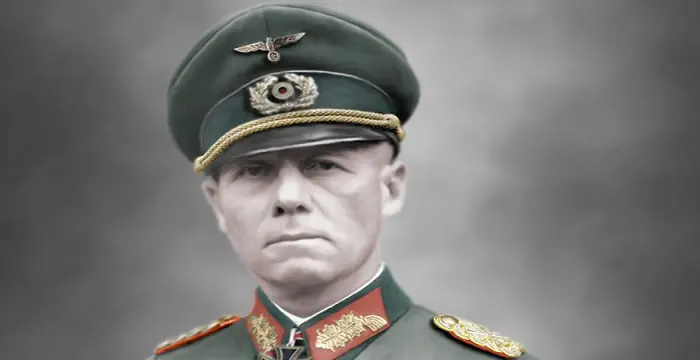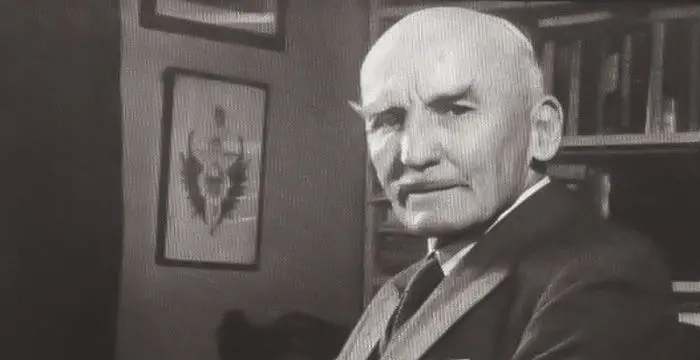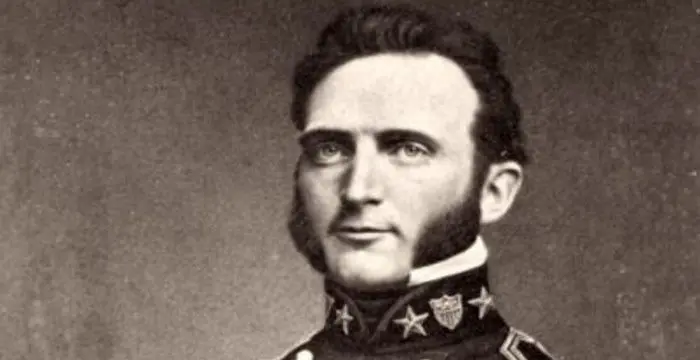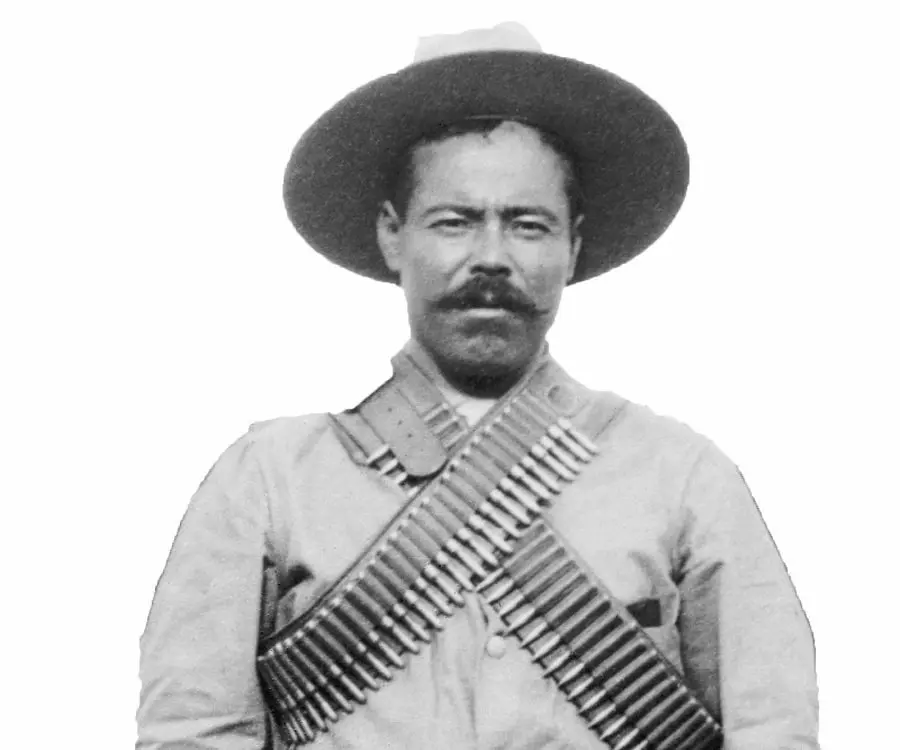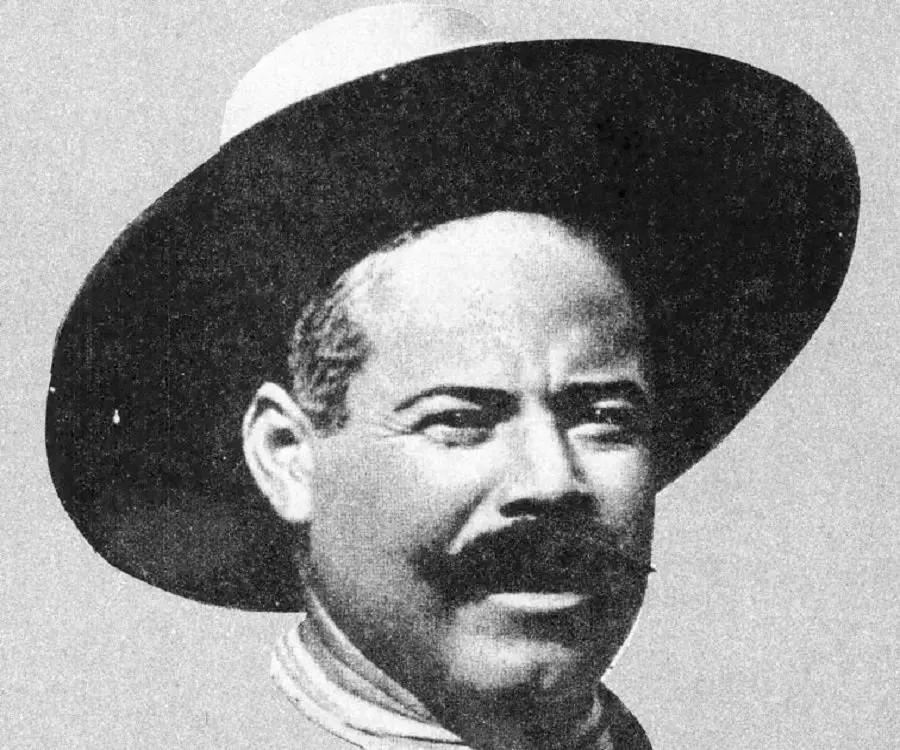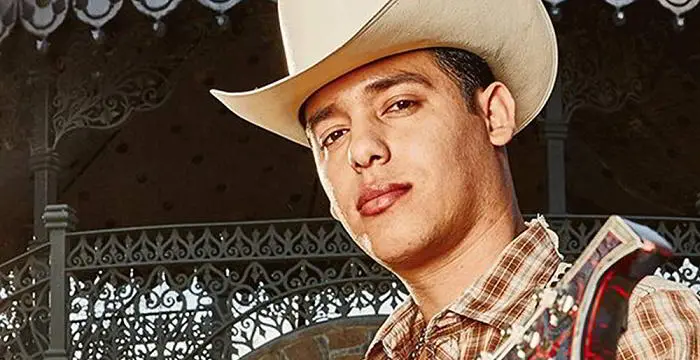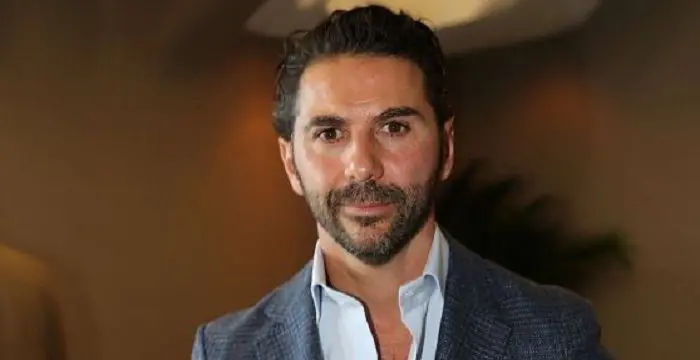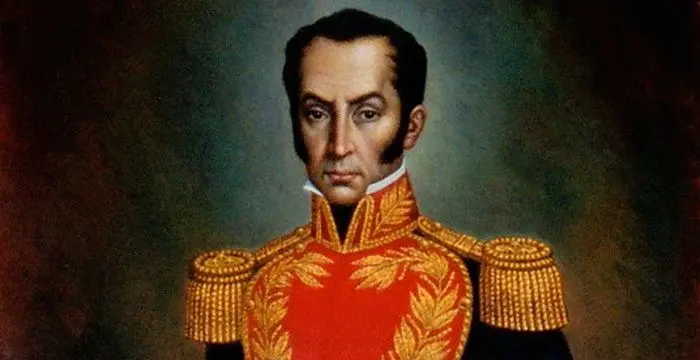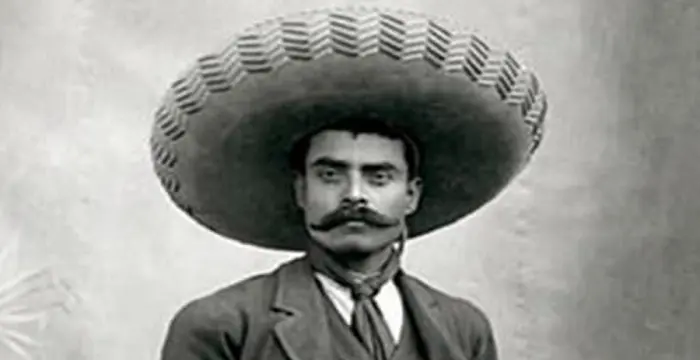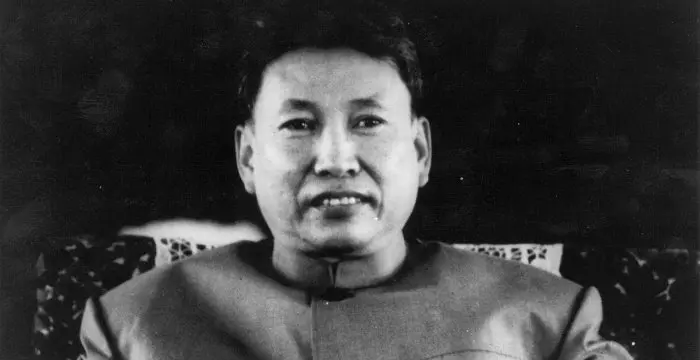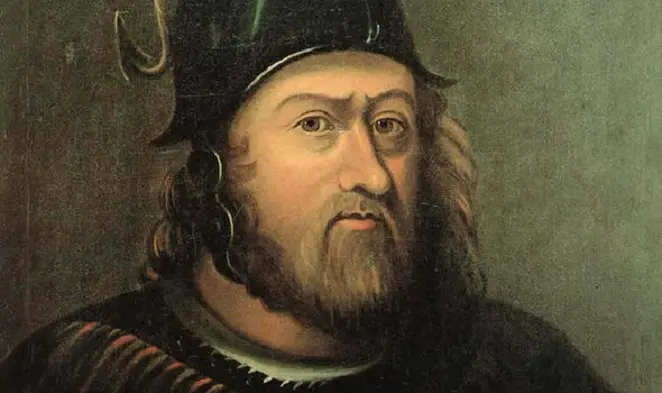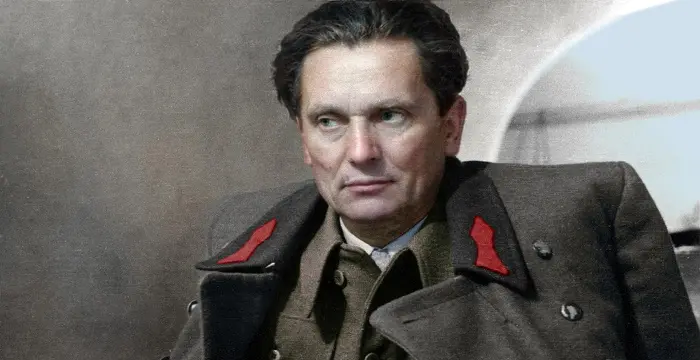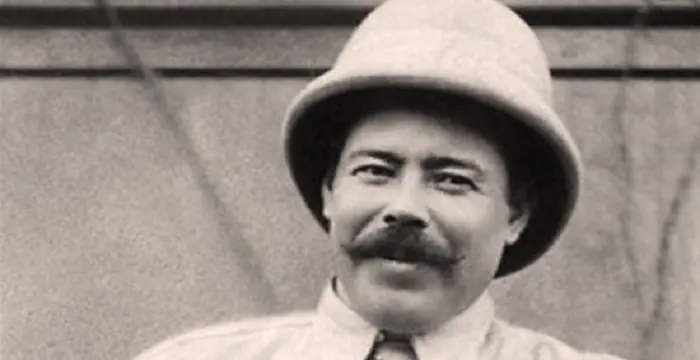
Pancho Villa - Mexican Men, Family and Family
Pancho Villa's Personal Details
Pancho Villa is one of the most renowned names of the ‘Mexican Revolution’ who was also the Governor of Chihuahua
| Information | Detail |
|---|---|
| Birthday | June 5, 1878 |
| Died on | July 20, 1923 |
| Nationality | Mexican |
| Famous | Democrats, Leaders, Revolutionaries, General, Mexican Men |
| Ideologies | Democrats |
| Spouses | Austreberta Rentería, María Luz Corral, Soledad Seañez Holguin |
| Known as | Francisco Pancho Villa, José Doroteo Arango Arámbula, Francisco Villa, Pancho Villa |
| Childrens | Celia Villa, Hipólito Villa, José Trinidad Villa |
| Cause of death |
|
| Birth Place | Durango |
| Gender | Male |
| Father | Agustín Arango |
| Mother | Micaela Arambula |
| Sun Sign | Gemini |
| Born in | Durango |
| Famous as | General |
| Died at Age | 45 |
// Famous General
Erwin Rommel
Erwin Rommel was a German general. This biography profiles his childhood, family, personal life, career, death, achievements and other facts.
J. F. C. Fuller
J. F. C. Fuller was a British military officer, author, advocate of tank warfare and supporter and sympathizer of the Nazi philosophy. Read this biography to get details about his childhood, life, profile and timeline.
Stonewall Jackson
Thomas Jonathan Jackson, better known as Stonewall Jackson, was a famous ‘Confederate’ general who served during the American Civil War.
Pancho Villa's photo
Who is Pancho Villa?
Pancho Villa is one of the greatest revolutionary leaders in world history. He was born in a working-class family, and after the death of his father, he shouldered the responsibilities of his family. He worked to earn a living and also acted protective of his sister. He apparently killed one of the estate owners as that person harassed his sister. He had to go underground to prevent imprisonment and when he was in the mountains, hiding from authorities, he met a group of bandits and joined them. He stole cattle and sold them to earn money. Eventually, he was captured and forcefully recruited into the army, which was a preventive measure taken by the then president Porfirio Díaz, to keep a check on increasing guerrilla movements. However, he escaped from the army and again continued his life as a fugitive. One of the political leader who was opposed to the president, understood Villa’s potential as a leader and advised him to use his strengths to overthrow dictatorial Díaz, which in turn will help the Mexicans. Pancho had a democratic ideology and did as he was suggested. Ever since then he worked for the welfare of his people and acquired a reputation as that of Robin Hood of the contemporary age
// Famous Mexican Men
Ariel Camacho
Ariel Camacho was a popular Mexican singer-songwriter. Check out this biography to know about his birthday, childhood, family life, achievements and fun facts about him.
Mario Bautista
Mario Bautista is a famous Mexican pop singer, R&B dancer, and social media star. Let’s take a look at his family, personal life, career, age, birthday, etc.
José Bastón
José Bastón is a Mexican entrepreneur. Check out this biography to know about his childhood, family, personal life, career, achievements, etc.
Childhood & Early Life
He was born to Agustín Arango and Micaela Arámbula, on 5th June, 1878 in San Juan del Rio, Durango, Mexico, and was named José Doroteo Arango Arámbula. He was the eldest child and had four siblings.
He attended a local school run by the church authorities, but after his father’s sad demise, he started working as a sharecropper in order to earn a livelihood.
He killed an estate owner named Agustín Lopez Negrete, but the reason behind this is uncertain. Fleeing from impending imprisonment, he took refuge in the ‘Sierra Madre Occidental’ mountains where he spent a few years as a bandit. He stole animals and was even taken into custody by the mountain police for his acts.
Later Life
In order to curb outlaws, the then president of Mexico Porfirio Díaz, took special measures according to which the fugitives were recruited into the Federal army by force. Similarly, Villa was also appointed into the army from where he soon evaded and travelled to the state of Chihuahua.
In 1903, he murdered an army officer and henceforth, he was renamed as Francisco "Pancho" Villa. His friends also address him as La Cucaracha (the cockroach).
He then used his outlaw pursuits in a better way after being advised by politician Abraham Gonzalez. Gonzalez was an associate of political leader Francisco Madero who was against the dictatorial rule of Porfirio Díaz, and made endeavours to help his fellow Mexicans fight with such regime.
The ‘Mexican Revolution’ which began in 1910, under the guidance of Francisco Madero, was also joined by Villa. The following year, the ‘Battle of Ciudad Juárez’ took between the federal army of Díaz and the revolutionary troops of Madero. The battle was won by Madero’s troops.
The revolution resulted in Díaz’s exile and Madero became the President of Mexico. The new president made Venustiano Carranza, who had been an associate of Díaz, the Minister of War. This decision of Madero was not accepted by Villa.
However, when military commander Pascual Orozco revolted against the new president, Villa battled against Orozco along with General Victoriano Huerta.
In 1912, he was taken into custody by Pascual and narrowly escaped a death sentence, after which he was moved to ‘Belem Prison’ located in Mexico City. In the prison he encountered Gildardo Magana, who was a Mexican politician and revolutionist. Magana taught Villa to read and write.
The same year, he was moved to the ‘Santiago Tlatelolco Prison’ and there too he found a teacher in Bernardo Reyes, who had been a General in the Mexican army under President Díaz. Reyes taught Villa about history and civics.
At the end of 1912, he escaped from prison and landed in a place near Nogales. He then travelled to El Paso, Texas and tried to inform about President Madero about an impending rebellion.
The uprising was ceased by Huerta, and thereafter, he wanted to rule Mexico in a dictatorial manner, and began plotting against Madero which led to the ‘La decena trágica’ (the Ten Tragic Days) and finally, the assassination of the President.
Villa and Carranza disapproved of Huerta and joined hands to overthrow this self-proclaimed president. They operated in the valley of the Río Bravo del Norte and organized rebellions which ended the presidency of Huerta.
This revolutionist was highly praised for his leadership qualities which he employed in recruiting troops and also the way he raised funds for the revolutionary army.
The local military commanders chose Villa as the Governor of Chihuahua in the year 1913. He embarked onto a successful journey as a governor by appointing generals like Porfirio Talamantes, Toribio Ortega and Calixto Contreras, who helped Villa run the army in an efficient way.
He collected funds from the rich to provide livelihood to his army. He even took over lands from rich land owners and granted these to the families of dead revolutionists. He printed currency and announced that it should be accepted as a legal currency. Many banks even accepted his currency.
He also seized gold from banks by abducting a family member of one of the bank’s owners.
He worked towards improving hospitals, transport system and even upgraded the army with arms and ammunitions.
He seized the city of Torreón, and even though revolutionist Venustiano Carranza tried to hinder Villa’s invasions, he and his troops successfully marched towards Zacatecas, and captured the city in 1914. This devastated Huerta and he finally went into exile.
Carranza’s army also reached Zacatecas and, Villa named him as the head of the revolution. They formed a National Convention and made rules which would pave the way for Mexico to be a democratic nation. The revolutionary chose not to hold any position in the government and Eulalio Gutierrez was elected as the president.
Carranza soon showed signs of a dictator and hence, general Emiliano Zapata and Pancho parted ways with him. Carranza then left the place and Villa and Zapata took over Mexico City. However, Carranza controlled two states of Mexico named Tamaulipas and Veracruz, which helped him earn more revenue than Villa.
During 1915, Villa faced a lot of challenges when Carranza and his troops battled against him and defeated him. Carranza also got the support of many who were initially associated with Pancho.
Even the United States withdrew its support and declined to provide Pancho with weapons, as the then president of America Woodrow Wilson found it beneficial to support Carranza and not him.
This leader had some faithful associates and with their help he continued his revolutionary expedition. In 1916, the ‘Battle of Columbus took place between his troops and the U.S. army.
The U.S. then employed to search for Pancho Villa and left no stone unturned in their combing operations. However, all their attempts went in vain as they could not find him.
In 1919, the ‘Battle of Ciudad Juárez’ was fought in which this revolutionist lost again. Shortly after, his enemy Carranza was assassinated and he decided to make peace with the then interim president Huerta. Huerta welcomed his decision and provided him and his army shelter and even granted them pension.
Major Battles
This leader led many rebellions and emerged successful in them. However, the one which is regarded as the most remarkable is the ‘Battle of Tierra Blanca’. His war strategies and plans impressed the U.S. army and his moves in the war were even covered by the film industry, and made into a documentary film.
Personal Life & Legacy
He married María Luz Corral in May, 1911, and had a child with her. However, the child died in infancy. Pancho also had relationships with several other women, and apparently, even entered into wedlock with a few of them.
The famous Mexican revolutionary was killed on 20th July 1923, by a group of seven riflemen who fired on his entourage and in the ensuing chaos nine bullets hit his upper torso, instantly killing him.
Trivia
This famous personality featured in many documentaries such as ‘Life of Villa’, ‘The Life of General Villa’ and ‘Following the Flag in Mexico’
// Famous Leaders
Edi Rama
Edi Rama is the current Prime Minister of Albania. Check out this biography to know about his childhood, life, achievements, works & timeline.
Tecumseh
Tecumseh was a Native American leader of the Shawnee clan. This biography profiles his childhood, life and timeline.
Khalifa bin Zayed Al Nahyan
Sheikh Khalifa bin Zayed Al Nahyan is the current President of the United Arab Emirates (UAE). Check out this biography to know about his birthday, childhood, family life, achievements and fun facts about him.
Pancho Villa biography timelines
- // 5th Jun 1878He was born to Agustín Arango and Micaela Arámbula, on 5th June, 1878 in San Juan del Rio, Durango, Mexico, and was named José Doroteo Arango Arámbula. He was the eldest child and had four siblings.
- // 1903In 1903, he murdered an army officer and henceforth, he was renamed as Francisco "Pancho" Villa. His friends also address him as La Cucaracha (the cockroach).
- // 1910The ‘Mexican Revolution’ which began in 1910, under the guidance of Francisco Madero, was also joined by Villa. The following year, the ‘Battle of Ciudad Juárez’ took between the federal army of Díaz and the revolutionary troops of Madero. The battle was won by Madero’s troops.
- // 1911He married María Luz Corral in May, 1911, and had a child with her. However, the child died in infancy. Pancho also had relationships with several other women, and apparently, even entered into wedlock with a few of them.
- // 1912In 1912, he was taken into custody by Pascual and narrowly escaped a death sentence, after which he was moved to ‘Belem Prison’ located in Mexico City. In the prison he encountered Gildardo Magana, who was a Mexican politician and revolutionist. Magana taught Villa to read and write.
- // 1912At the end of 1912, he escaped from prison and landed in a place near Nogales. He then travelled to El Paso, Texas and tried to inform about President Madero about an impending rebellion.
- // 1913The local military commanders chose Villa as the Governor of Chihuahua in the year 1913. He embarked onto a successful journey as a governor by appointing generals like Porfirio Talamantes, Toribio Ortega and Calixto Contreras, who helped Villa run the army in an efficient way.
- // 1914He seized the city of Torreón, and even though revolutionist Venustiano Carranza tried to hinder Villa’s invasions, he and his troops successfully marched towards Zacatecas, and captured the city in 1914. This devastated Huerta and he finally went into exile.
- // 1915During 1915, Villa faced a lot of challenges when Carranza and his troops battled against him and defeated him. Carranza also got the support of many who were initially associated with Pancho.
- // 1916This leader had some faithful associates and with their help he continued his revolutionary expedition. In 1916, the ‘Battle of Columbus took place between his troops and the U.S. army.
- // 1919In 1919, the ‘Battle of Ciudad Juárez’ was fought in which this revolutionist lost again. Shortly after, his enemy Carranza was assassinated and he decided to make peace with the then interim president Huerta. Huerta welcomed his decision and provided him and his army shelter and even granted them pension.
- // 20th Jul 1923The famous Mexican revolutionary was killed on 20th July 1923, by a group of seven riflemen who fired on his entourage and in the ensuing chaos nine bullets hit his upper torso, instantly killing him.
// Famous Revolutionaries
Tecumseh
Tecumseh was a Native American leader of the Shawnee clan. This biography profiles his childhood, life and timeline.
Simon Bolivar
Simón Bolívar was a Venezuelan military leader who was instrumental in independence of several Latin American countries from the Spanish rule. This biography profiles his childhood, life, achievements and timeline.
Emiliano Zapata
Emiliano Zapata was a Mexican revolutionary leader and one of the most important figures of the Mexican Revolution.Check out this biography to know about his childhood, family life, achievements and other facts about his life.
Pol Pot
Pol Pot was the Cambodian revolutionary who led the Khmer Rouge. This biography provides a glimpse of his childhood, career, profile and timeline.
William Wallace
William Wallace was a Scottish knight who was a central figure in the Wars of Scottish Independence. This biography of William Wallace provides detailed information about his childhood, life, achievements, works & timeline.
Josip Broz Tito
Josip Broz Tito was the powerful revolutionary leader of Yugoslav Partisans. Check this biography to know more about his childhood, life, profile and timeline.
Pancho Villa's FAQ
What is Pancho Villa birthday?
Pancho Villa was born at 1878-06-05
When was Pancho Villa died?
Pancho Villa was died at 1923-07-20
Where was Pancho Villa died?
Pancho Villa was died in Parral
Which age was Pancho Villa died?
Pancho Villa was died at age 45
Where is Pancho Villa's birth place?
Pancho Villa was born in Durango
What is Pancho Villa nationalities?
Pancho Villa's nationalities is Mexican
What is Pancho Villa ideologies?
Pancho Villa's ideologies is Democrats
Who is Pancho Villa spouses?
Pancho Villa's spouses is Austreberta Rentería, María Luz Corral, Soledad Seañez Holguin
Who is Pancho Villa childrens?
Pancho Villa's childrens is Celia Villa, Hipólito Villa, José Trinidad Villa
What is Pancho Villa's cause of dead?
Pancho Villa dead because of Assassination
Who is Pancho Villa's father?
Pancho Villa's father is Agustín Arango
Who is Pancho Villa's mother?
Pancho Villa's mother is Micaela Arambula
What is Pancho Villa's sun sign?
Pancho Villa is Gemini
How famous is Pancho Villa?
Pancho Villa is famouse as General
